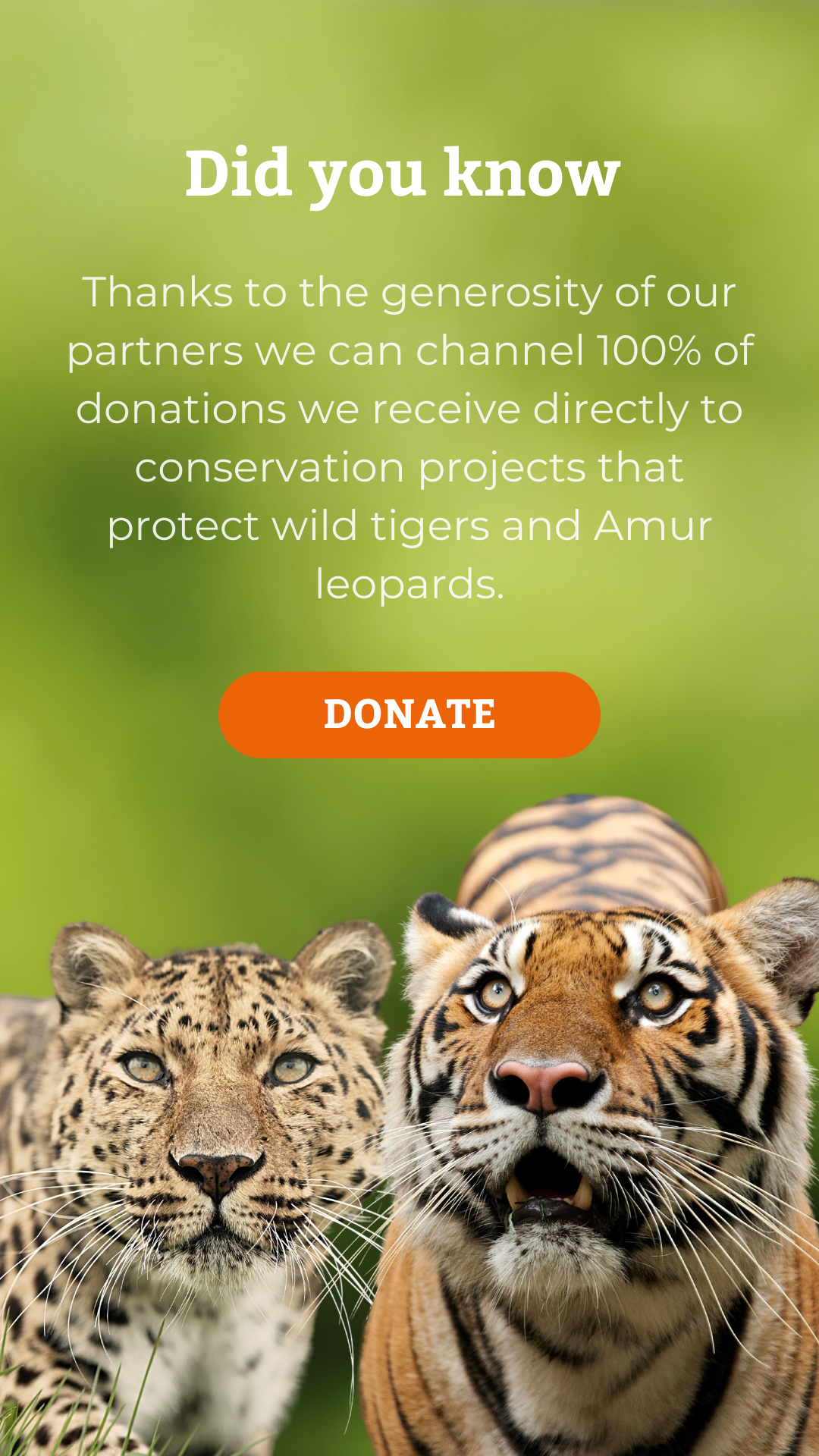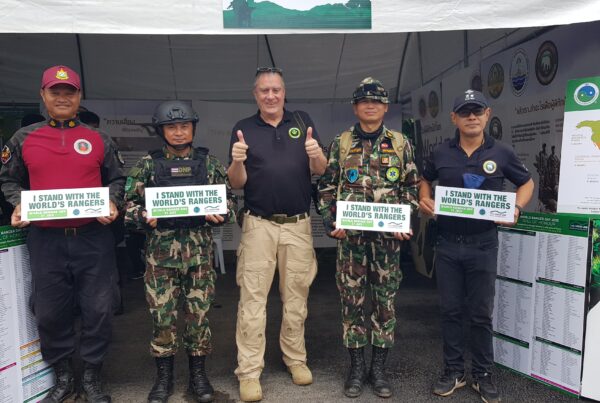In a mountain forest on the Thai–Myanmar border, 121 hidden, motion‑triggered cameras watched silently for almost 12,000 nights. They caught something worth celebrating: tigers still using Khao Laem National Park, and a new male, nicknamed M7, moving in. That single cat tells a bigger story: the forests here are still connected enough for tigers to travel, find space and, we hope, start families.
Threats facing Khao Laem’s tigers
Khao Laem faces people‑driven pressures on many fronts. Poachers still operate, illegal gold mining is drawing people deeper into the forest and war in neighbouring Myanmar has led to more cross-border movement of people into the forests, bringing with them more weapons and opportunistic hunting. At the same time, illegal free‑grazing domestic cattle compete for food with tiger prey and may transmit lumpy skin disease to banteng and wild gaur populations. In another hit for tigers’ food sources, the recent African swine fever outbreak has left wild boar populations extremely low. With less wild prey, tigers will often turn to domestic animals to supplement their diet, which brings them into conflict with humans, risking the safety of both tigers and people. Finally, dry‑season fires pull rangers off anti‑poaching patrols and community work, which means fewer eyes in the forest just when tigers need protection most.
The importance of rangers
Since 2016, WildCats Conservation Alliance has supported our partner Freeland to strengthen protection in Khao Laem National Park (KLNP). The park links northern tiger habitats with the lower Western Forest Complex and supports its own breeding population of roughly 10–12 tigers. Without connecting parks like Khao Laem, young tigers would struggle to disperse, find mates and breed, putting the future of the Indochinese tiger at risk.
Rangers are the difference on the ground. Their daily presence deters illegal activity, monitors wildlife and helps prevent conflict. In 2024 alone:
- 121 camera traps were deployed across remote, rugged terrain to monitor tigers and prey.
- 9 ranger teams completed 355 patrols, investing 46,248 hours and covering a gruelling 22,368 km.
- Rangers reached 4 villages and 11 schools, engaging 1,226 students with conservation messages and practical advice.
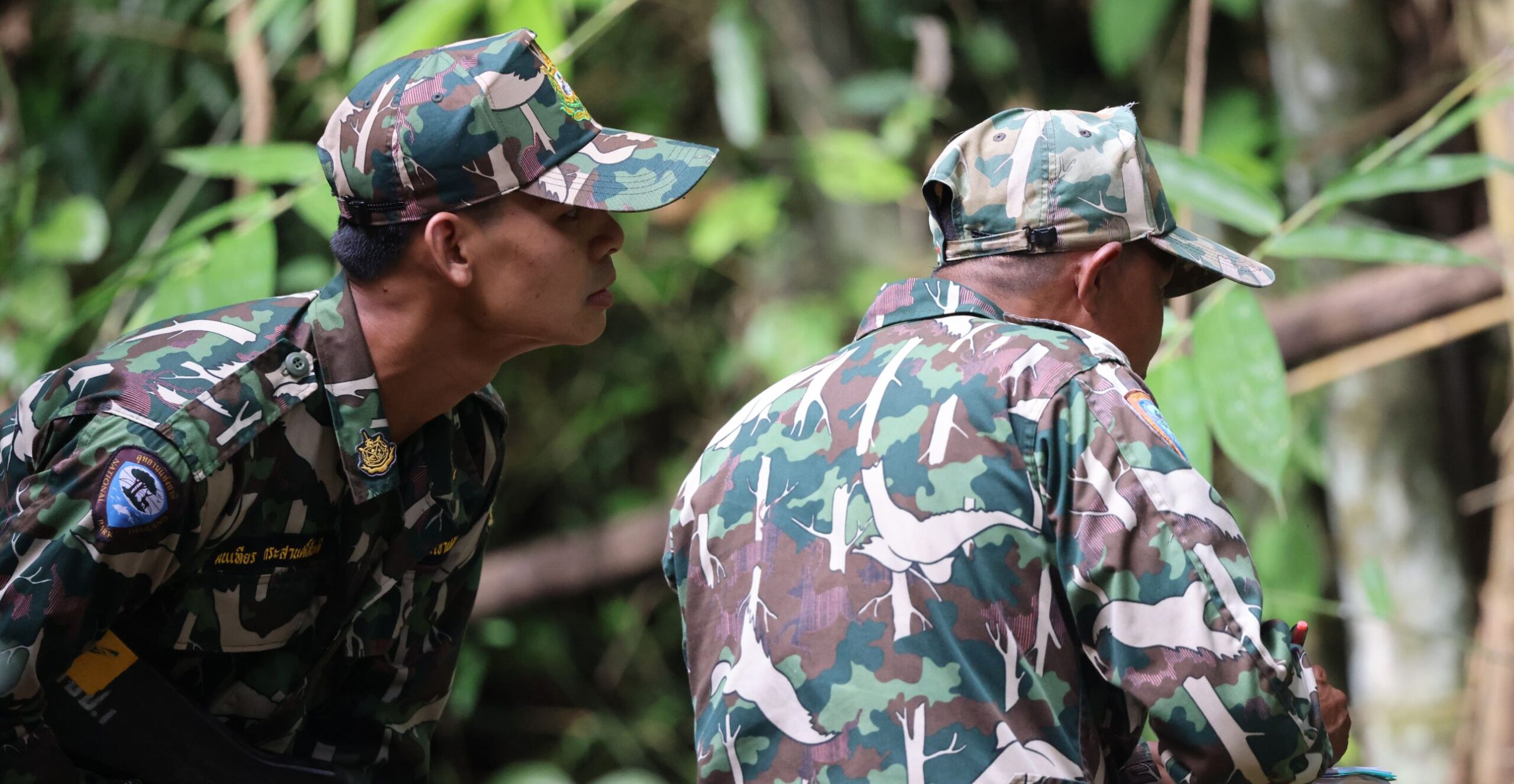
Rangers training for patrols in Khao Laem National Park
Supporting rangers with training and tech
Each year, our project with Freeland equips rangers with training and gear to keep them safe and effective. In 2024, 63 rangers received training in strategic patrolling, data collection and storage, anti-poaching techniques, and the setup of camera traps.
To go further, the team has been working with Thailand’s Department of National Parks (DNP) to introduce EarthRanger at KLNP. Just in time for World Ranger Day, EarthRanger has been approved for launch in Khao Laem, set to become the first National Park in Thailand to use the system.
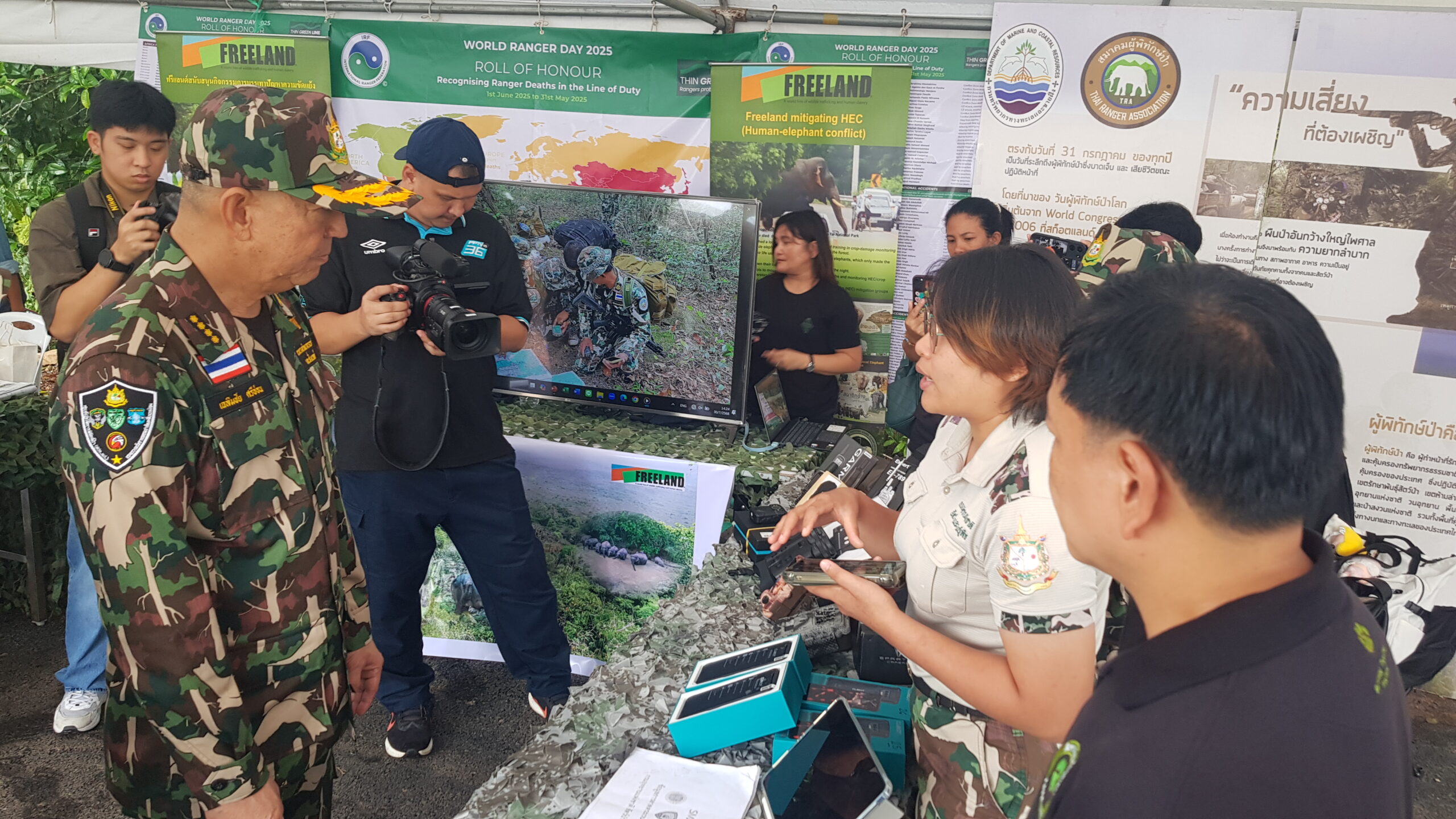
Working with members of Thailand’s Department of National Parks (DNP) on the adoption of tech. ©Freeland
What EarthRanger is
EarthRanger is a real-time operations and incident-management platform designed for conservation. It brings together data from patrol teams, camera traps, vehicles, radios and other sensors on a live map and timeline, helping rangers act faster and stay safer.
- Before patrols (planning): Historical and live data reveal hotspots so teams can plan routes and set clear objectives.
- During patrols (in the field): A mobile app (no special hardware needed) lets rangers record sightings, threats, photos and notes, even offline, syncing when back in signal. Control rooms can see team locations and coordinate responses, supporting safety and rapid decision-making.
- After patrols (debrief & learning): All tracks, observations and media feed into reports for debriefs and trend analysis, so tactics improve over time.
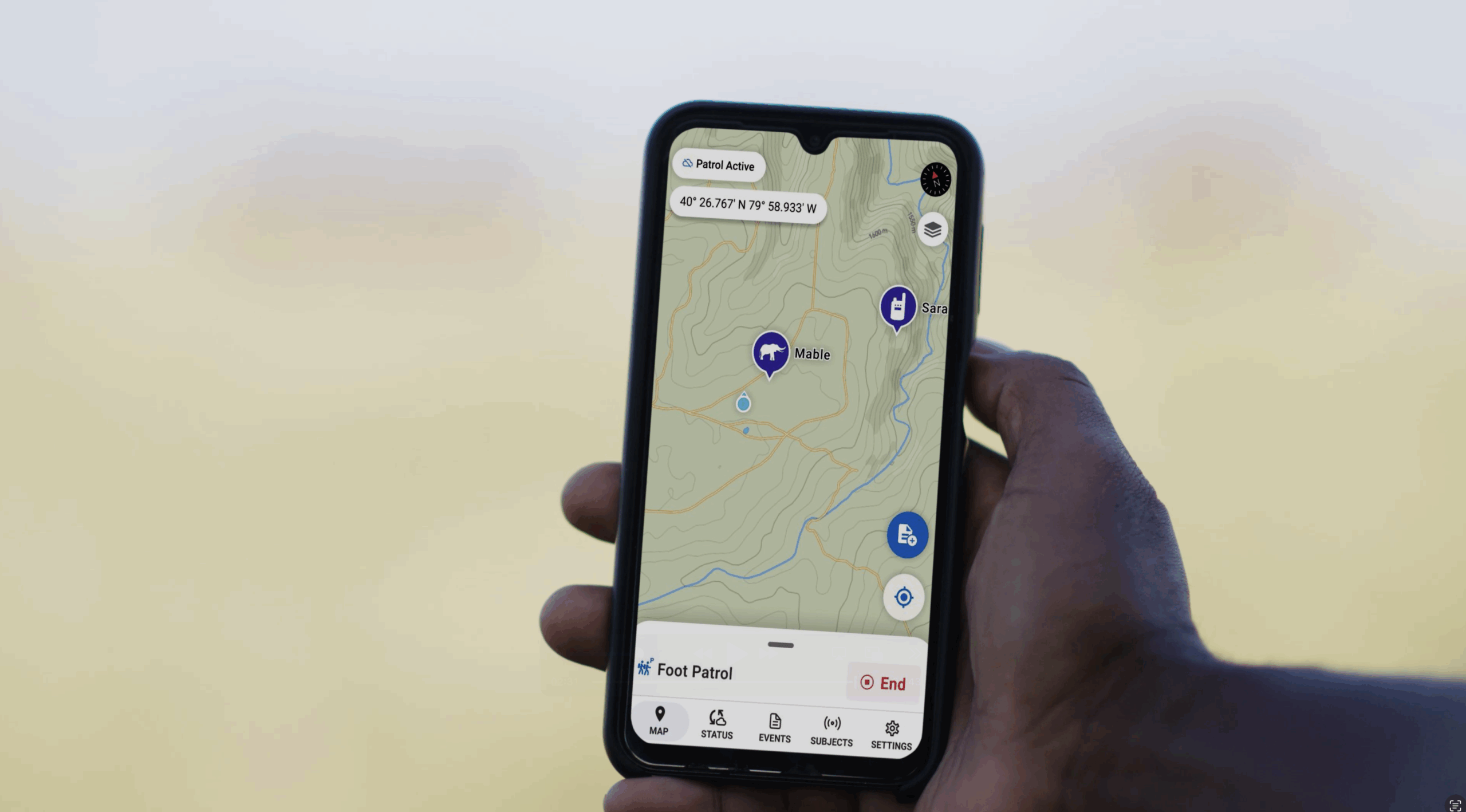
EarthRanger mobile app. ©earthranger.com
Stand with rangers this World Ranger Day
We’re proud to support the Khao Laem team and excited about what EarthRanger will add to their work. If you’d like to help keep rangers equipped, trained and safe, please donate to WildCats Conservation Alliance today.
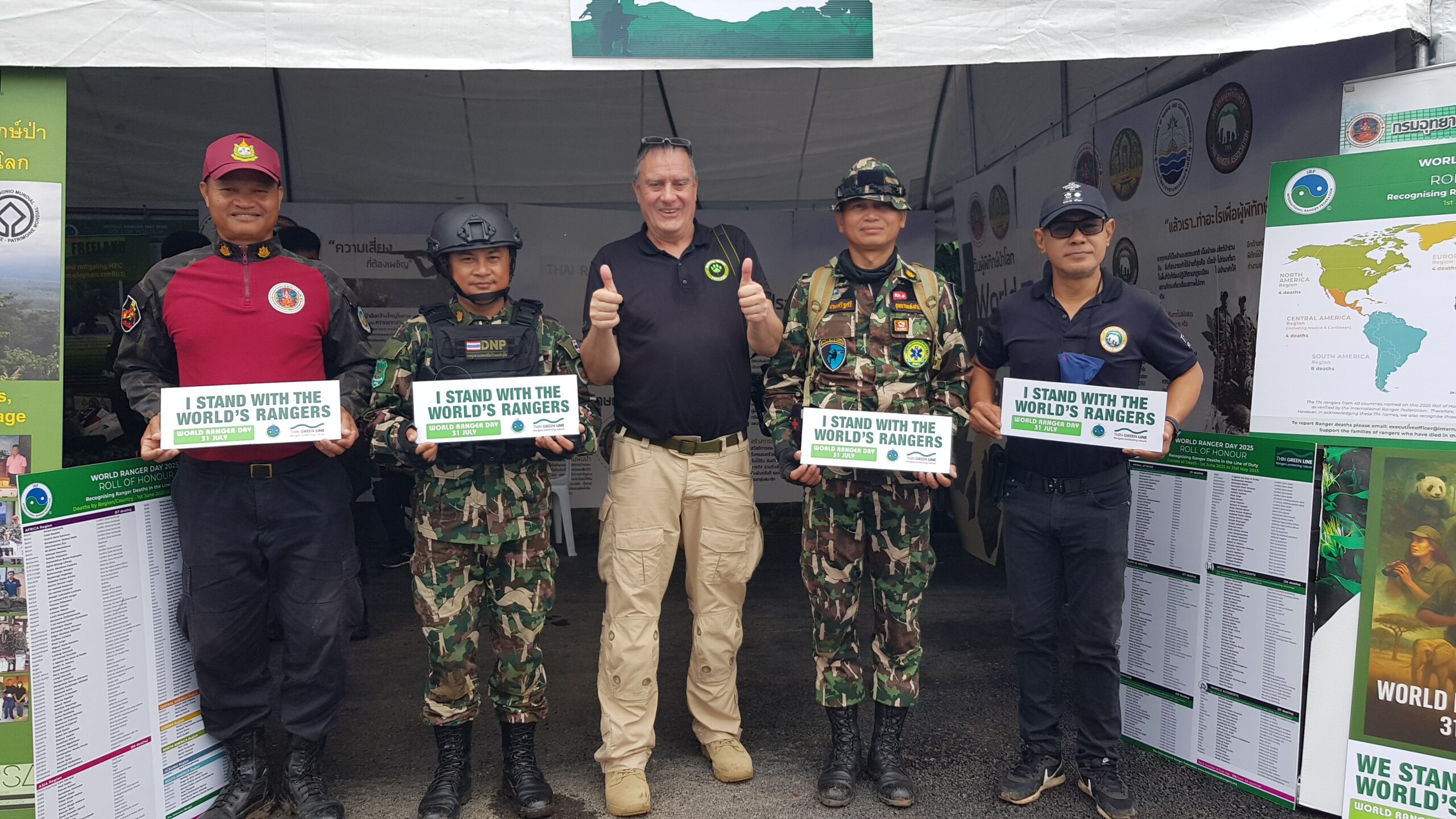
Freeland’s Surviving Together Program Director with rangers and officials from the DNP. ©Freeland
Work led by Thailand’s national park authority and Khao Laem NP with support from Freeland, funded by WildCats Conservation Alliance and partners.

